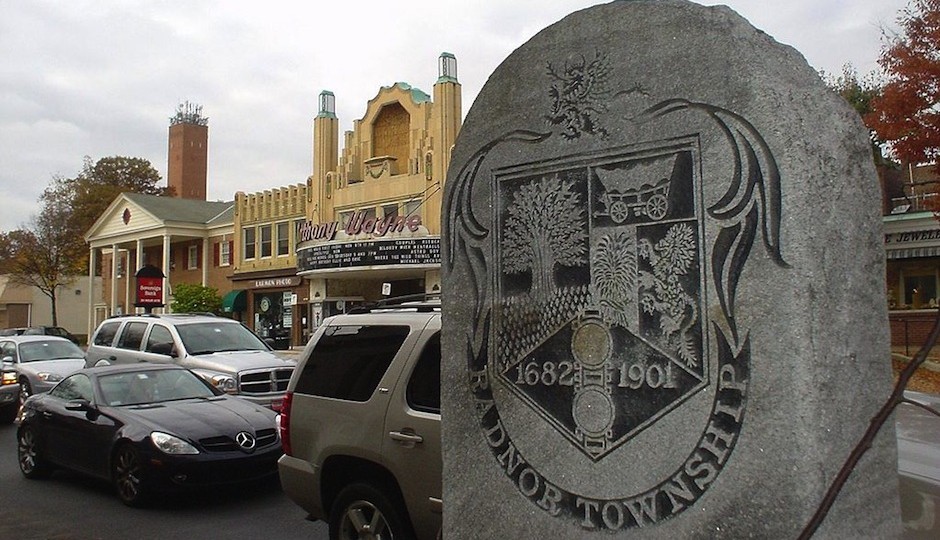Live in Radnor? Better Not Say You’re From Philly

Hey, youse guys! You are not from Philadelphia, got that? Image of not-Philadelphia via Wikipedia
Hillary Kelly wrote a ridiculous piece for the New Republic a few days ago to say that unless a person is from Philadelphia County proper — “inside the city lines” — they should not say they’re from Philadelphia, and particularly not at a party. Those who falsely make the Philly-native claim are liars, she says, and are not entitled to imply that they have certain qualities that are her own:
I’m proud to come of my hometown—proud that, as a kid, I could rattle off Philly’s neighborhoods and understand the cultural intricacies of each one, a kid who loved watching the cityscape change as I took the bus deeper into Philly to my grandmother’s house, who knew which areas were dangerous and which were gentrifying (thanks to my father, a police officer).
She then says, “I can’t deny my urban elitism” and moves right along with the essay as breezily as if she’s skipping down a sidewalk on a sunny day. I know little about Hillary Kelly, but I’m guessing she can’t be more than, say, 33 because I can’t imagine anyone older than that gliding past a confession of elitism without recognizing that it needs to be interrogated intellectually. (And it should be noted that many, many people in their 20s and 30s recognize this as well.)
Plus, it’s such an interesting dynamic — this tension between urban elitists and suburban elitists, and what it means in terms of class, among many factors. It certainly would have made for a better essay than the subsequent paragraphs about her fiancé’s impeccable behavior. As a woman who used to do this myself, I ask: why must young female writers invoke the example of the men they’re shtupping having sex with in articles like this? You don’t need the penis opinion, ladies. Your own is solid enough.
I should know a little something about Philadelphia bona fides. I just published a piece about growing up in Philly — and inside the city lines, too. But when the person I’m speaking with says, “Well, actually, I’m from Radnor,” I say, “Oh, for heaven’s sake. Same thing.” Because, well, I’ll let TNR commenter Dave Hamilton to take the stage, as he puts it so well:
The notion that the influence, characteristics, and soul of a city dissipate upon crossing the city line is ludicrous, especially in the age of highly integrated transit systems. The people who work, eat, spend money in and participate the cultural life of the city may sleep in surrounding towns. But they contribute to the overall character of the city that the author wants to claim for her own. They don’t just mooch off the nostalgia and identification of those who grew up near downtown.
I dare say that a lot of kids raised in the burbs may be the progeny of native in-city residents who, at a certain age, wanted a backyard or thought they could find better schools for their kids. If you’re brought up in the suburbs by people who grew up within the city limits, does that give partial cultural credit? What if you’re taught by them in school? You get the idea. The distinction is ridiculous up to some distance from the city proper, depending on the size of the city. Over decades and even centuries, a city grows and infuses itself into the identity of the surrounding area even if its borders don’t change at all. Philadelphia couldn’t hold its people or its character within its borders if somehow legislated to do so.
Thank goodness for intelligent commenters. They are out there.
Don’t Say You’re From the City If You’re Really From the ‘Burbs [TNR]
8/12/14: This piece has been updated with the replacement of a Yiddishism with regular old English and the addition of the word “ridiculous” for clarification.


